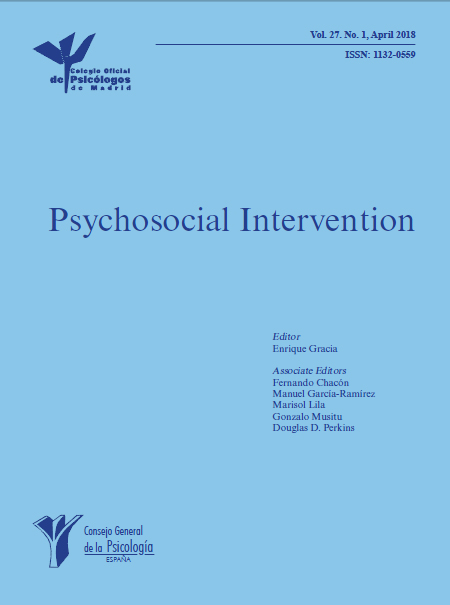
Effective workgroups: The role of diversity and culture
[Grupos de trabajo eficaces: el papel de la diversidad y de la cultura]
Paulo Renato Lourenço1 , Isabel Dórdio Dimas2 , Teresa Manuela Marques Santos Dias Rebelo1
1Univ. Coimbra, Portugal ,2Univ. Aveiro, School of Technology and Management of Águeda, Portugal
https://doi.org/10.1016/j.rpto.2014.11.002
Abstract
The purpose of this study was to contribute to the clarification of the conditions under which teams can be successful. To attain this goal, the direct and interactive effects of diversity and of the team's cultural orientation towards learning on team outcomes (team performance, team members' satisfaction) were analyzed. Data were obtained from a survey among 73 teams from different industrial and service companies, which perform complex and non-routine tasks. In order to test the hypotheses, multilevel analysis and hierarchical regression analysis were conducted. The results show a significant (although marginal) effect of diversity on members' satisfaction with the team. The team orientation towards learning presented positive effects on both team performance and members' satisfaction with the team. No interactive effects were identified. Although the positive impact of a learning culture on organizational effectiveness has already been studied and is well established in the literature, this is one of the first studies that provides empirical evidence of the impact of this kind of culture at the team level. At an intervention level, this study points to managers who want to create successful teams that they may be advised to enhance the levels of the team orientation towards learning, creating conditions in the team to promote and support the acquisition of knowledge.
Resumen
El objetivo de este estudio ha sido contribuir a aclarar las condiciones que hacen que los equipos sean eficaces. A tal fin se analizaron los efectos interactivos directos e indirectos de la diversidad y de la orientación cultural del equipo sobre el desempeño del mismo (rendimiento, satisfacción de sus miembros). Se obtuvieron datos de una encuesta aplicada a 73 equipos de diferentes empresas industriales y de servicios que llevan a cabo tareas complejas y no rutinarias. Para la puesta a prueba de las hipótesis se llevó a cabo un análisis multinivel y regresión jerárquica. Los resultados señalan un efecto significativo (aunque marginal)de la diversidad en la satisfacción de los miembros en el equipo. La orientación de éste hacia el aprendizaje tenía efectos positivos tanto para el desempeño del equipo como para la satisfacción de los miembros con el equipo. No se observaron efectos interactivos. A pesar de que ya se haya estudiado la repercusión positiva de una cultura de aprendizaje en la eficacia de la organización y que esté bien consolidada en las publicaciones, este estudio es uno de los primeros en aportar pruebas empíricas de las consecuencias de este tipo de cultura al nivel de equipo. Al nivel de intervención, el estudio señala que puede aconsejarse a los directivos que deseen crear equipos eficaces que mejoren el nivel de orientación del equipo hacia el aprendizaje, sentando las condiciones en el equipo que favorezcan y respalden la adquisición de conocimientos.
Allison, 1978, Adkins and Caldwell, 2004, Ahmed et al., 1999, Ancona and Caldwell, 1992, Bantel and Jackson, 1989, Becker, 2005, Berends et al., 2003, Bliese, 2000, Bliese, 2009, Bowers et al., 2000, Bradford, 1999, Brewer and Kramer, 1986, Brown, 1998, Browne and Cudeck, 1993, Bunderson and Sutcliffe, 2003, Burke et al., 1999, Byrne, 2001, Chatman and Flynn, 2001, Christian et al., 2006, Cohen et al., 2003, Conway, 2002, Conway and Lance, 2010, Cook and Yanow, 1996, De Dreu and Weingart, 2003, Dimas, 2007, Ely, 2004, Earley and Mosakowski, 2000, Egan et al., 2004, Edmondson, 1999, Edmondson, 2002, Edmondson et al., 2007, Evans, 1985, Fiol and Lyles, 1985, Gibson and Vermeulen, 2003, Gladstein, 1984, Guzzo and Shea, 1992, Hackman, 1990, Hackman and Oldham, 1980, Hambrick et al., 1996, Harrison et al., 1998, Hill, 1996, Hu and Bentler, 1999, Jackson, 1992, Jackson et al., 1995, Jehn and Bezrukova, 2004, Jehn et al., 1999, Khandekar and Sharma, 2006, Klein and Kozlowski, 2000, Kline, 2005, Kulik, 2004, Lau and Murnighan, 1998, Lines, 2005, López et al., 2004, Lubinski and Humphreys, 1990, Maanen and Barley, 1985, Marsick and Watkins, 1994, McAleese and Hargie, 2004, Mohammed and Angell, 2004, Murray and Carter, 2005, Oliver and Kandadi, 2006, O’Reilly et al., 1998, Palthe, 2003, Podsakoff et al., 2003, Foundation et al., 2011, Rebelo and Gomes, 2011a, Rebelo and Gomes, 2011b, Sacco and Schmitt, 2005, Sackman, 1992, Saji, 2004, Salaman, 2001, Schein, 1985, Schein, 1992, Schein, 1996, Schippers et al., 2003, Sense, 2004, Simons et al., 1999, Stott and Walker, 1995, Teachman, 1980, Tjosvold, 1991, Turner, 1982, Van der Vegt and Bunderson, 2005, Van Knippenberg and Schippers, 2007, Van Woerkom and Van Engen, 2009, Webber and Donahue, 2001, Williams and O’Reilly, 1998 and Yang, 2003.
Copyright © 2024. Colegio Oficial de la Psicología de Madrid








 CrossRef
CrossRef






